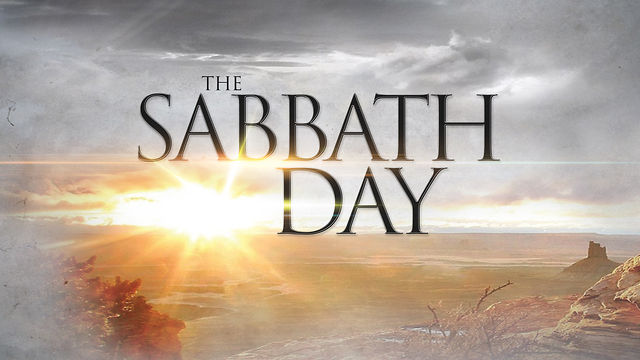Sunday Mass is absolutely necessary.
Sunday Mass fulfills God’s law. The Third Commandment is, “Remember to keep holy the Sabbath day” (Ex 20:8; see also Dt 5:12). The Christian Sabbath is Sunday, and Catholic’s keep the Sabbath holy by fulfilling the obligation to attend Mass (Canons 1246-1248; Catechism of the Catholic Church, No. 2174-2178). The Commandment is not a suggestion or a request; it is a command or an order. The law makes compulsory what we should want to do on our own.
Weekly Worship Follows Jesus’ Example. Jesus was in the habit of going to the synagogue on the Sabbath day (Lk 4:16b). His mother Mary was “full of grace” (Lk 1:28) and his stepfather Joseph was “a righteous man” (Mt 1:19) and they both carefully “fulfilled all of the prescriptions of the law” (Lk 2:39) which means that they went to the synagogue every Sabbath. Not only did they observe this law themselves, they took their son with them, and when Jesus was old enough he went on his own. If Jesus went to the synagogue to observe the Sabbath every week, we should go to Mass every week.
Sunday is a Day of Thanksgiving. Eucharist means thanks. It is right and just to give thanks to the Lord our God, and the Mass is the best prayer to offer thanks. God graciously blesses us with everything that we have: life and health, food and shelter, family and friends, intellect and talents, opportunity and resources – and faith. These gifts are so awesome that we ought to be overflowing with gratitude and eager to give our thanks and praise. The ideal is to give thanks every day. Weekly thanksgiving is a bare minimum. If we give thanks only intermittently or rarely we fail to adequately honor the Giver of the gifts.
Community Prayer is Essential. From the beginning of the Church the community “devoted themselves … to the breaking of the bread and the prayers” (Acts 2:42). Christians pray together by nature, and the Mass is the premier form of communal prayer. Some make the unfortunate claim: “I can pray by myself and I do not need to go to church.” Usually the more negligent a person becomes with their Mass attendance, the more negligent the person becomes with their private prayer. There are two pillars to a well-rounded prayer life, communal and private, and to do one or the other exclusively is to be imbalanced. The more a person prays privately, the more the person should want to worship with the community, and the more a person worships with the community, the more a person should want to pray privately.
Weekly Eucharist is Solid Spiritual Food. Most people are health-food conscious. It is important to eat properly every day to avoid hunger pains, weakness, malnutrition, and disease. It is the same with our spiritual life. We need to be spiritual-food conscious if we wish to avoid emptiness, spiritual weakness, vulnerability to temptation, and sickness due to sin. The Mass begins with the Liturgy of the Word. God told the prophet Ezekiel, “Eat what is before you; eat this scroll” (Ez 3:1). God wanted him to devour his word, and God wants us to do the same. Peter accurately observed, “Master, you have the words of eternal life” (Jn 6:68). The second half of the Mass is the Liturgy of the Eucharist. Jesus declared, “My flesh is real food, and my blood true drink” (Jn 6:55). Spiritual malnutrition begins when we go without Word and Sacrament for longer than a week.
Source: rediscover.archspm.org


